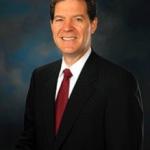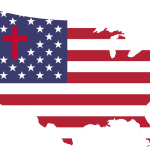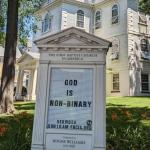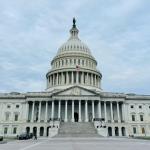I was pleased that some people enjoyed reading and thinking about one of my posts last week, “Protestant confessionalism and Trump’s evangelical support.” Going along with my standing assumption that the term “evangelical” is almost meaningless in political polling, I hoped to advance an argument about how adherence to certain theological beliefs might help explain why some conservative white Protestants support Trump while others do not.
Trump’s evangelical supporters, at least at the elite level, tend to come from non-denominational institutions. Their place in the evangelical world is not tied to specific confessional expressions of Protestantism. Their Christian identity, such as it is, tends to be generic: They are “Bible-believers” and “born-agains,” not Calvinists or Anglicans.
Evangelical holdouts are notably more tied to specific confessional traditions. At the mass level, they are more frequent churchgoers. This probably means they are more self-consciously aware of and formed by their identity not just as “mere Christians,” but as Methodists, Baptists, Reformed, etc. #NeverTrump evangelical elites tend to be leaders in explicitly confessional institutions.
I stand by this analysis, but I fear I may have created some confusion with my use of the adjective confessional: “Generic evangelicals or cultural/nominal Protestants go for Trump. Confessional evangelicals are theologically primed to resist him.”
Patheos blogger Gene Edward Vieth alludes to this by using confessional in its proper historical, theological sense:
I don’t know how a majority of confessional Lutherans will come down on the election. Because Lutheran confessions teach the doctrine of the Two Kingdoms, which distinguishes between the political and spiritual realms, there may be more political diversity among Lutherans. Many confessional Lutherans are on the political left and many are libertarians.
Looking back at my own writing, I realize I have taken to using the descriptor confessional to refer to Christians self-consciously rooted in a specific theological tradition. The Reverend Dr. Ed Stetzer breaks down American Christianity into three categories:
The first category–Cultural Christians–is made up of people who believe themselves to be Christians simply because their culture tells them they are. The second category–Congregational Christians–is similar to the first group, except these individuals at least have some connection to congregational life. The final group–Convictional Christians–is made up of people who are actually living according to their faith.
I am pretty hesitant to appoint myself the arbiter of who is truly convictional, but I see what Stetzer is getting at. I have been using confessional synonymously with his convictional label.
Denominationalism per se is surely not a relevant predictor of Trump support. I kind of regret associating C.S. Lewis’s “mere Christianity” with non-denominationalism in this context. Surely Lewis, the devout Anglican, would find Trump abhorrent. But I do think that people who are rooted in robust theological traditions are less susceptible to Trumpism than are those who subscribe to generic Protestantism.
@jlupf CS Lewis warned against staying in the hallway of mere Christianity. Your article seems to describe the dangers that lurk there.
— Michael (@mbrobison) October 12, 2016

















